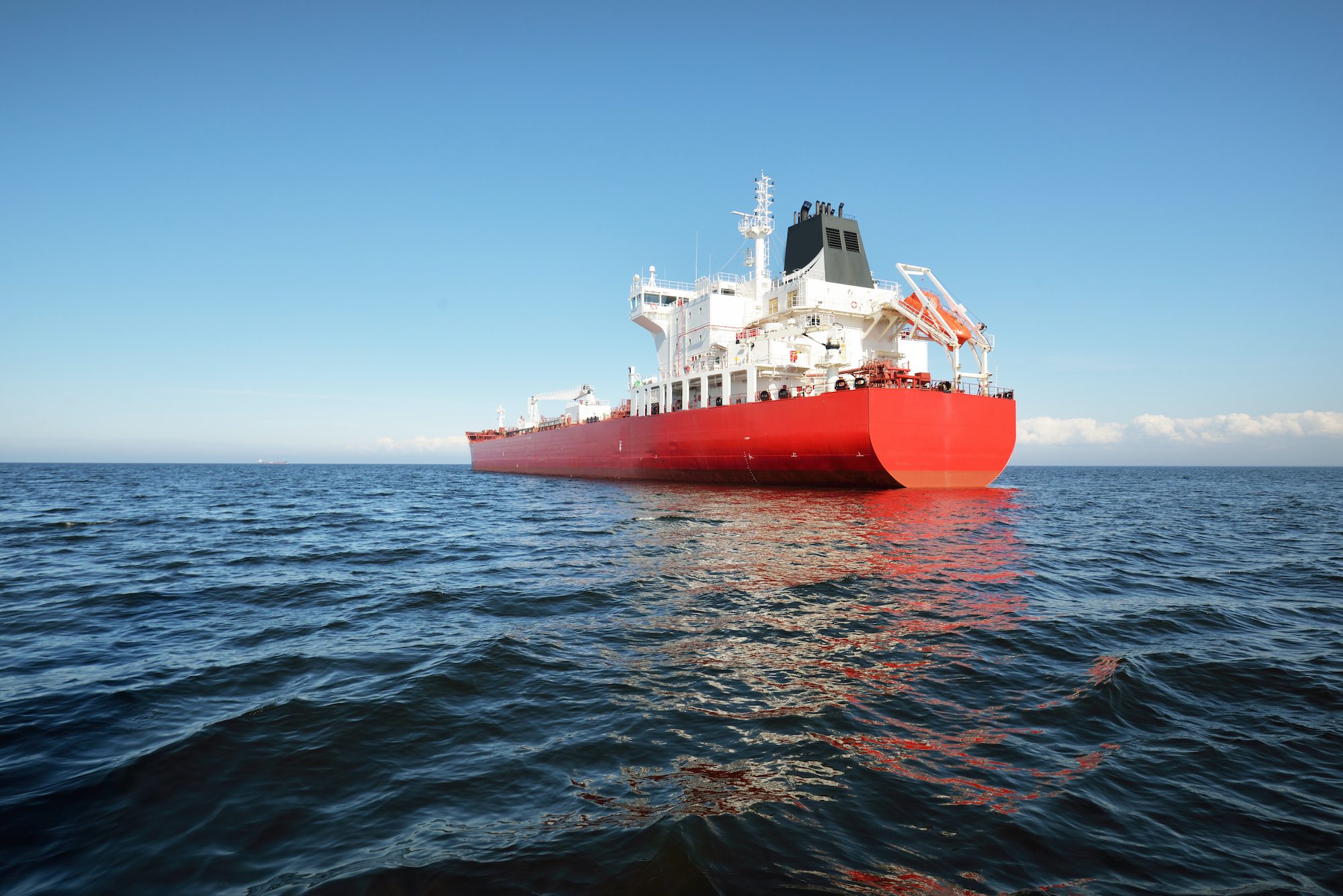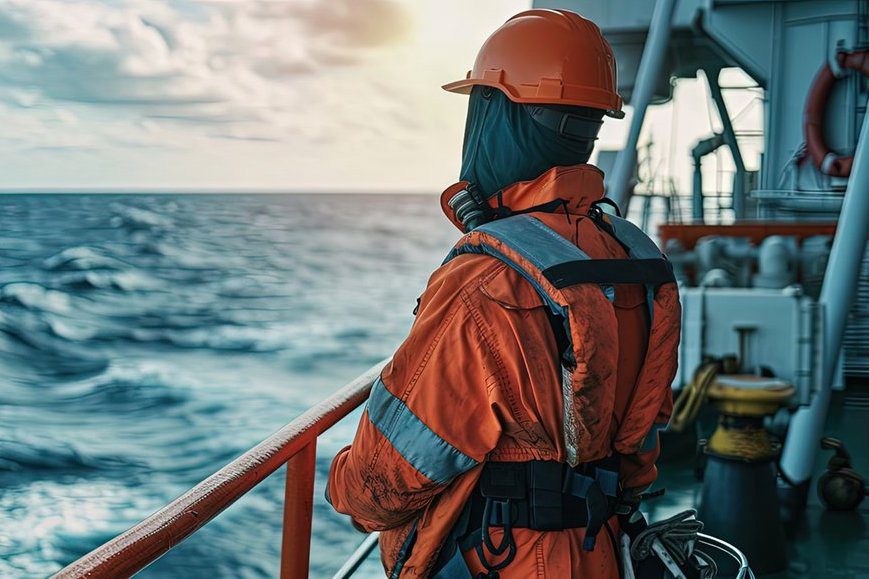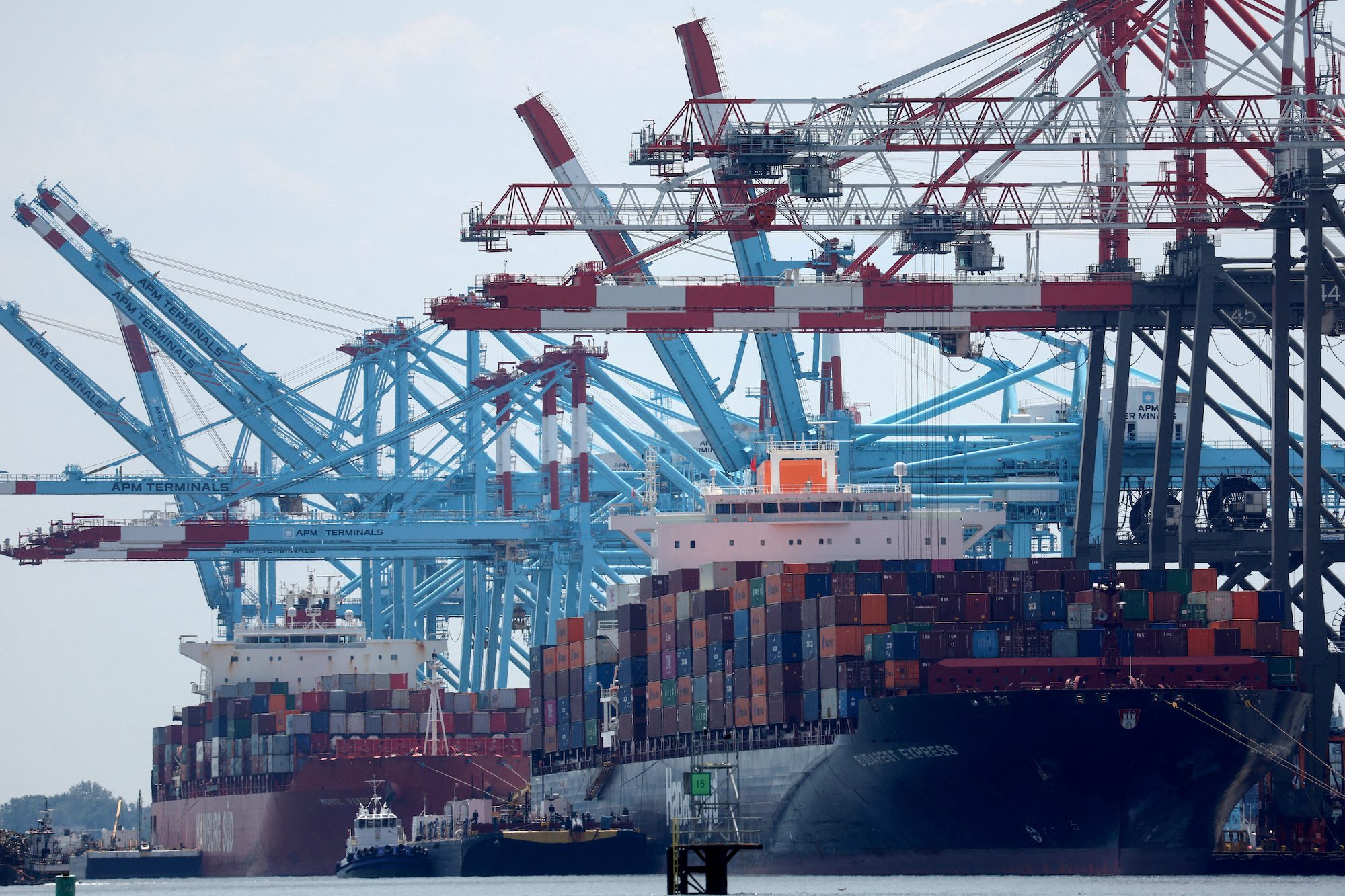By John Davison and Phil Stewart
DUBAI/TEL AVIV, Dec 18 (Reuters) – Attacks by Yemen’s Iran-aligned Houthi militants on ships in the Red Sea are disrupting maritime trade and prompting U.S. efforts to build a coalition to deal with the threat, as freight firms reroute around the Cape of Good Hope to avoid the Suez Canal.
The Houthi group said it launched a drone attack on two cargo vessels in the area on Monday, the latest in a series of missile and drone strikes on shipping which it says are a response to Israel’s assault on the Gaza Strip.
U.S. Defense Secretary Lloyd Austin, speaking on a visit to Israel, said Washington was building a coalition to address the Houthi threat and said defense ministers from the region and beyond would hold virtual talks on the issue on Tuesday.
Norway said it was ready to provide naval officers, while other NATO states said they were ready to consider support.
About 15% of world shipping traffic transits via the Suez Canal, the shortest shipping route between Europe and Asia.
Several major freight firms — including MSC — have begun to sail around Africa instead, adding costs and delays which are expected to be compounded over coming weeks, according to industry analysts.
London’s marine insurance market widened the area in the Red Sea it deemed high risk on Monday, adding to premiums ships pay.
The war between Israel and Hamas, which began on Oct. 7, has sent shockwaves through the region and threatened to cause a broader conflict.
The Red Sea attacks have showed the ability of Middle Eastern paramilitary forces backed by Iran to upset global trade at a time when Tehran and its proxies are positioning themselves against the United States and Israel.
Combined, the companies that have diverted vessels “control around half of the global container shipping market,” ABN Amro analyst Albert Jan Swart told Reuters.
Oil major BP temporarily paused all transits through the Red Sea and oil tanker group Frontline said on Monday its vessels would avoid passage through the waterway, signs the crisis was broadening to include energy shipments. Crude oil prices rose on those concerns on Monday.
“War risk insurance premiums are on the rise naturally, but as vessels gets rerouted around Africa shipping supply will be tighter as cargoes travel longer,” Frontline CEO Lars Barstad told Reuters. “That would put rates under a strong upwards pressure.”
Norwegian energy group Equinor said on Monday it had rerouted “a few ships” carrying crude oil and liquefied petroleum gas (LPG) away from the Red Sea. The company declined to say how many vessels were affected.
Houthi attacks also pushed some firms to rethink connections with Israel. Taiwan’s Evergreen Marine 2603.TW said on Monday it had decided to temporarily stop accepting Israeli cargo.
‘SERIOUS THREAT TO INTERNATIONAL TRADE’
The shipping attacks have prompted the United States and its allies to discuss a task force that would protect Red Sea routes, a move that U.S. and Israeli arch-foe Tehran has warned would be a mistake.
“In the Red Sea we’re leading a multi-national maritime task force to uphold the bedrock principle of freedom of navigation,” Austin said during his Israel visit.
Norway said on Monday it was ready to contribute up to 10 naval officers to the U.S.-led task force. Italy said it was considering joining, while Denmark’s Defence Minister Troels Lund Paulsen said Copenhagen would “participate” in helping to provide security, without elaborating.
Some observers pointed out that despite the Houthi group’s claim to be hitting only Israeli-linked vessels, their targets include ships not headed to or affiliated with Israel.
“The Houthi – and by extension their main military backer Iran – are probably using their strike capability in the Red Sea to further exercise greater geopolitical influence in the region, in addition to influence on Israel’s war in Gaza,” said Jack Kennedy of S&P Global Market Intelligence.
KNOCK-ON DELAYS, HIGHER PRICES
The shipping diversions could result in significantly slower shipments and potentially higher prices for consumers.
Rico Luman, an analyst at ING, said at least a week of sailing time would be added for container liners. Typically, shipping goods from Shanghai to Rotterdam takes around 27 days via the Suez Canal.
“This will at least lead to delays in late December, with knock-on effects in January and probably February as the next round will also be delayed,” Luman said.
The disruptions would likely affect supply of consumer goods ahead of the Chinese new year in particular, with delays leaving retailers with unsellable stock and ultimately driving up prices for consumers, said Marco Forgione, director general at the Institute of Export and International Trade.
French food group Danone said most of its shipments had been diverted, which will add transit time. “We… have mitigation plans in place which will be activated if the situation continues for the mid- to long-term,” a spokesperson for Danone said. “This will include using alternate routes via sea or road wherever possible.”
While freight rates will likely increase on these longer voyages too, carriers at the moment were seeking ways to utilize excess capacity, said Zvi Schreiber, CEO of global freight platform Freightos.
“It is unlikely that rates will spike to levels experienced during the pandemic,” said Schreiber, referring to the economic effects of COVID-19 from 2020.
(Reporting by Toby Sterling, Phillip Stewart, Jacob Gronholt-Pedersen, Ben Blanchard, Alexander Cornwell, Helen Reid, Jonathan Saul, Josephine Mason, Mrinalika Roy, Kate Holton, Diana Mandia, Dubai newsroom; Writing by John Davison; Editing by Elisa Martinuzzi, Edmund Blair and Toby Chopra)
(c) Copyright Thomson Reuters 2023.

 Join The Club
Join The Club











